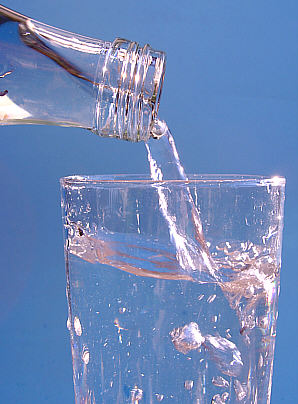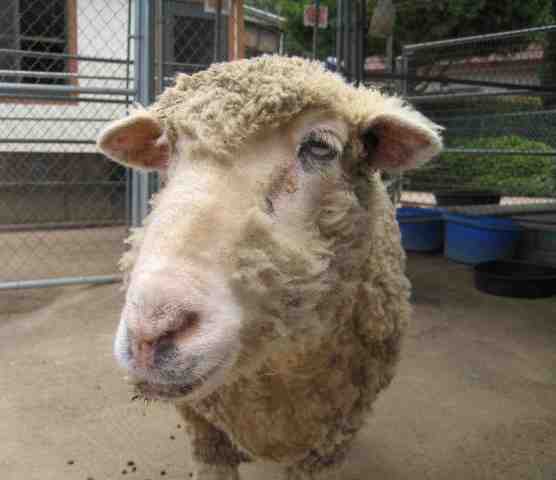Healthy Digestion and Cleansing Practices
Healthy digestion is getting the most benefit from the food you eat.
The results of healthy digestion:
* Abundant energy
* Feeling of lightness in the body
* Clear eyesight
* Sharp mental function
* Balanced emotions
Healthy Digestion =
1. Break-down of food in the mouth, stomach, and the small intestine +
2. Proper absorption of the broken down food +
3. Proper elimination of the waste.
The following Tapas practices improve digestion in all of the above three areas.

# Drink a full glass of water first thing in the morning
Add fresh lemon as a detox helper, or a tablespoon of apple cider vinegar.
Our bodies become dehydrated overnight. We breathe out moisture with every exhale. It's critical to rehydrate upon waking to jump-start all body processes: muscles, organs, brain.
Apple Cider Vinegar also works well to stimulate healthy digestion at any other time of day.
You can find it at most health food stores. The raw kind has strands of pro-biotic culture, often called 'the Mother', which supports healthy intestinal flora.
# Fast at least 12 hours after dinner and before breakfast
Support the body's natural detox process by giving it rest from digestion every night.

# Chew all food really well
Chew until you can 'drink' each bite: 20 to 50 times!
Good digestion begins in the mouth. Especially for complex carbohydrates, which digest only in the mouth and the small intestine.
The stomach acids DO NOT break down carbohydrates!
If you don't chew the carbs (greens, salads, grains, and beans) you probably will not digest them. So you may experience gas, bloating, and slight pain in the belly.
In fact, those symptoms are very common due to the way we eat: little chewing, on the go, multi-tasking.
Chewing also gives notice to the body that food is coming down, so the stomach, liver, gallbladder, pancreas, etc., all get ready, and bloating is avoided.
Carnivorous animals don't have to chew. In fact, they can't, as their jaws don't move side to side. They rip the food instead. They eat mostly fats and protein, which get digested in the stomach just fine.
Herbivores (like chimps, gorillas, horses, cows, giraffes, elephants, AND humans) have to chew.
All herbivorous animals chew. Sometimes for hours. Have you noticed that? Except for us, humans. Somehow, we have ignored to observe nature and our obvious biology.
# Eat smaller meals
Smaller meals are easier to digest.
History shows repeatedly that people who eat fewer calories and little in general, have fewer diseases and live longest.
# Eat simpler meals
Meals with fewer than three types of food (i.e. veggies, fruits, meat, fish, eggs, dairy, beans, grains, nuts and seeds, etc.) are digested better.
With fewer types of food in the stomach, the foods do not 'compete' with each other and all foods are digested well.
Each kind of food requires different digestive juices and enzymes. When too many types of foods are eaten together, digestion is compromised because different enzymes may interfere with each other's digestive functions.
# Don't snack between meals
Eat four or five small meals if you have to (when in serious athletic training), but don't graze all day.
Grazing weakens the digestive system, exhausts enzyme reserves, and does not allow your digestive organs to rest.
# Consume enzyme-rich foods or take enzyme supplements
Without enzymes, no digestion can take place.
Enzymes are special proteins necessary for every chemical reaction in the body including digestion, breathing, thinking, and immune defense.
Only raw foods contain enzymes. To learn more, please go to Enzymes for Healthy Digestion.
# Sip hot tea or hot water with lemon
If you have eaten too much rich and fatty food, get some hot water with lemon as an after-meal drink. You can also try seltzer with lemon, or peppermint tea.
Lemon helps cut the grease, and according to Chinese medicine, the sour taste stimulates the liver.
# Eat pro-biotic foods
Remember to include some natural probiotics in your diet every day. They maintain healthy bacteria in the large intestine.
Healthy intestinal flora aids digestion.
In addition, it's able to 'produce' certain enzymes and amino acids, otherwise required to obtain from food.
Pro-biotic foods: Kombucha (fermented tea), raw Apple Cider Vinegar, raw Sauerkraut, Kim-Chi (Asian sauerkraut), yogurt (soy or dairy), cottage cheese, miso, and tempeh (fermented soy beans).
There are a few other cultural foods obtained through fermentation.
Old cultures have always had one or two pro-biotic foods consumed on a regular basis. They must have known better.
|
|